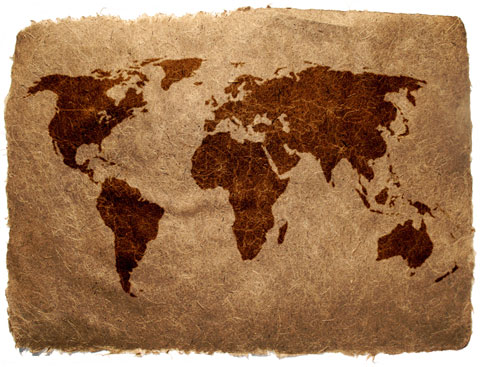The following interview was reported on June 27th, 2014 by Neelam Chowdhary at AsiaSociety.org.
Asia Society was excited to welcome Dr. Tererai Trent as a keynote speaker at the seventh annual Partnership for Global Learning Conference, running this year on June 27-28, 2014 in New York City. Dr. Trent is a world-renowned activist, author, and speaker about education and equity whose remarkable life journey began with an impoverished childhood in northern Zimbabwe — as has been recounted by Nicholas Kristof and Oprah Winfrey, who called Dr. Trent her “favorite guest of all time.”
In preparation for this year’s conference, we asked Dr. Trent about her extraordinary work to promote global competence, the capacity and disposition to understand and act on issues of global significance.
Describe your current work in education.
The memory of my early days of illiteracy is never more vivid than when I travel back to my community and meet with childhood friends and neighbors who cannot read because they did not have an opportunity for an education. I believe that education will provide all children with tools to master a higher quality of life. The benefit to girls is particularly important, as studies have shown that every additional year that a girl remains in school progressively reduces her likelihood of contracting HIV/AIDS, dying in childbirth, or living in poverty.
If the state of schools and the quality of education in rural Africa is not improved, our children are doomed for failure as the cycle continues! Through my foundation, I am committed to bringing education and sustainability to rural communities. In partnership with Oprah Winfrey and Save the Children, nine schools are being built and education has been improved for nearly 4,000 children so far. Oprah Winfrey’s $1.5 million donation has boosted our education effort and paved the way to what was formerly impossible. This project has motivated communities and children to see the value of education and carry it forward for themselves and for generations to come.
I have also taken steps to found Tererai Trent International, a foundation complimented by a business model as an engine to create revenues to sustain all education efforts. I believe an education system that solely depends on external funding is not sustainable.

What does global competence mean to you?
Increasingly, we live in an interdependent, interrelated, and interconnected world, where it is fundamentally important to expand our knowledge about global issues (and how they relate to outcomes behind education, cultures, gender and environmental and economic systems, etc.). We are one thread in a web connecting this globe — hence, it requires all of us to be engaged in a responsible and effective manner for the benefit of the greater good. A globally competent individual possesses the following:
- Global solidarity, a sense of being interrelated and interconnected — an awareness of society and culture and how we fit in as individuals.
- A commitment to ethical citizenship — a commitment to act on behalf of global human rights; “If it’s demeaning and takes away dignity to my family, it also should not be good for my neighbor.”
- Curious about global issues (international issues and how they affect outcomes related to education, cultures, gender and environmental and economic systems).
- Eager, sensitive, and authentic about cross-cultural issues in order to understand the world beyond the borders of their own country of origin.
- A proud, responsible global citizen of both the world and individual communities.
- A lifelong learner who is forever engaged in issues outside his/her territory with an ability to learn, discover and fully engage in global issues.
- Promoting confidence in others, individuals who are comfortable in their own skin and who are able to relate to others, especially the disadvantaged and the oppressed.
What advice would you give to your teachers to help make schooling for current students focus more on global competence?
This is beyond an individual teacher’s capability, rather, global competence should be woven into the foundational fabric of our school systems — the school curriculum. School curriculum should encourage students to look beyond their major disciplines and also take classes in other disciplines. The world itself is more “wholistic” than the way current majors are packaged, which in my opinion is too linear. An education system that promotes a broad world-view is bound to produce global thinkers.
Given limited resources, global competence has to start much earlier — at the K-12 level. This means that K-12 teacher-training programs have to include global education to become a more significant part of the curriculum. This is what inspires our learners; it opens authentic dialogues among learners and teachers, and ultimately the ripple effect is felt and seen in the world.
Universities with global competencies should provide support and offer incentives to teachers and administrators to become internationally fluent. This can be achieved by:
- Teacher training: Train teachers in global competence, hence, teachers’ training should provide courses with international content.
- Student classroom environment: Offer global subject offerings and research methods to support and produce internationally rounded and critical thinkers.
I believe that the real measure of global competence lies in what our students become as a result of their education — a whole person with integrity who takes responsibility for the real world. Global competence helps all of us to be better citizens who understand global issues and their implication to the world we want our children to inherit.

Recent Comments